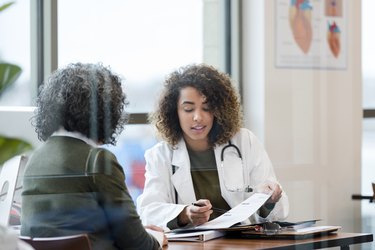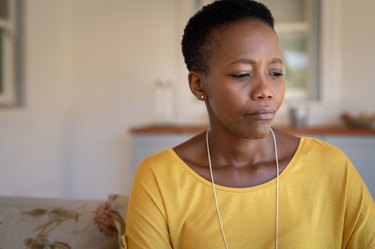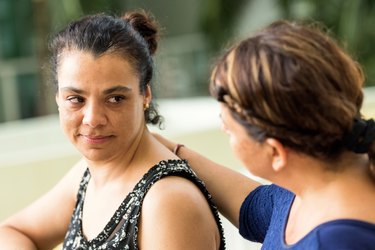
Breast cancer is the second most common cancer in women (after skin cancer), according to the American Cancer Society (ACS). In 2020 alone, there will be about 276,480 newly diagnosed cases.
But continuing advances in research mean that today, breast cancer is more treatable than ever.
In this guide, you'll get practical recommendations for preventing and living with breast cancer — from minimizing your risk of the disease to coping with a diagnosis.
What Is Breast Cancer?

Breast cancer is a disease that occurs when cells begin to grow out of control in the breast, per the Centers for Disease Control and Prevention (CDC). Scientists now understand that breast cancer is not just one disease, but several.
The most common symptom is a lump in the breast, but many women don't have any symptoms at all. That's why screening methods, which can catch signs of cancer early on, are so important. The most common one is a mammogram, according to the National Cancer Institute (NCI).
Breast cancer is usually classified by identifying where in the breast the cancer started, whether or not it has spread and how far.
And just as there are many types of breast cancer, there are also many types of treatments. If you are diagnosed, you'll work closely with your doctor to determine the best course of treatment for you.
Read more about the risk factors for breast cancer, along with screening guidelines and treatment options.
How to Prevent Breast Cancer

Your odds of developing breast cancer depend on factors that you can control and some you can't.
For instance, your age, race and family history are risk factors out of your control. But lifestyle choices, diet, stress levels and exercise all play a role in your overall chances of developing breast cancer — and they are in your hands.
While you should always speak to your doctor about your personal risk for breast cancer, there are general strategies, like exercising regularly, that can help decrease the odds.
Learn about science-backed ways to help reduce your risk of developing breast cancer — and how to put these strategies into practice.
Coping With Breast Cancer

Getting diagnosed with breast cancer can be a shock, and it may leave you feeling a storm of emotions: sorrow, fear, anxiety and more. Expect to go through an emotional journey before you are able to fully process and accept the news.
To better cope with your new reality, it helps to be informed as you meet with your oncology team to discuss your treatment options.
And, it's always a wise idea to seek out support: Turn to friends and family, but also seek out people who have breast cancer or are in remission; they'll be able to truly empathize with your situation.
Discover five important strategies to cope with a breast cancer diagnosis.
Why Exercise Is Important After a Breast Cancer Diagnosis

Not only is it possible to exercise if you're undergoing or have recently finished treatment for breast cancer, but being active can go a long way toward improving your health and helping you cope with the emotional side of treatment.
If you've been diagnosed with breast cancer, you should aim to be active for at least four hours a week, per the ACS. Exercising helps keep excess fat tissue at bay. That's important, since fat tissue contains estrogen, the hormone that spurs the growth of many breast cancers, according to the nonprofit BreastCancer.org.
Experts agree that it's safe to exercise during and after breast cancer treatment. But it's important to follow any instructions or precautions laid out by your doctor. In general, start at an easy pace and up the intensity gradually.
See recommended workouts for people who have breast cancer and the types of exercise to skip for now.
What to Eat — and What to Avoid — When You Have Breast Cancer

Along with exercise, what you eat after a breast cancer diagnosis is an important consideration. The key question, of course, is if there's a diet that can help reduce the risk of your breast cancer returning or progressing.
More research is needed to determine what specific diet — if any — can lower the risk of breast cancer reoccurrence, per the ACS. But even if there isn't one singular recommended diet for breast cancer survivors, the benefits of following a healthy diet are clear: For one, it can help you maintain a healthy weight, which is linked to a lower risk of breast cancer returning, according to the ACS.
Following a diet that's low in fat and high in healthy foods such as lean proteins, fiber-filled whole grains and vegetables will help support your overall health and wellness post-diagnosis.
Find out which foods to incorporate into your daily meals — and which ones it's best to cut from your diet.
Is this an emergency? If you are experiencing serious medical symptoms, please see the National Library of Medicine’s list of signs you need emergency medical attention or call 911.